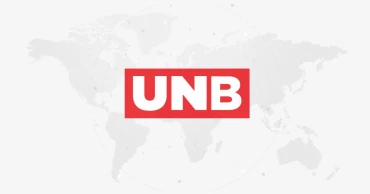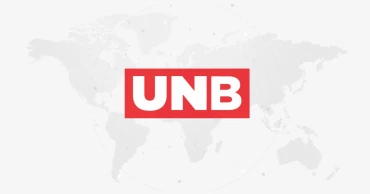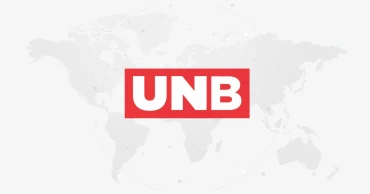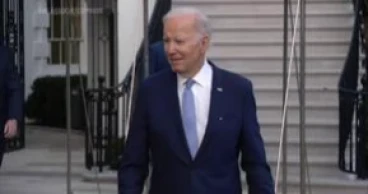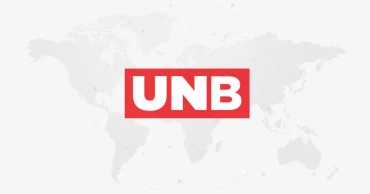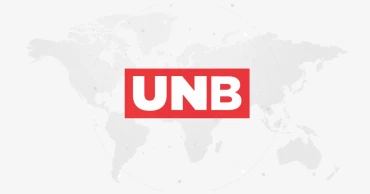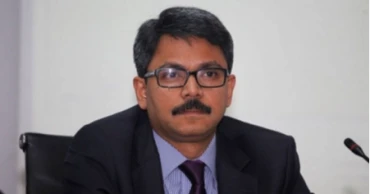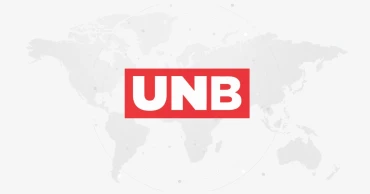sanctions
US restricts Russian and Iranian groups over disinformation targeting American voters
The United States has imposed sanctions on two groups linked to Iranian and Russian efforts to target American voters with disinformation ahead of this year's election.
Treasury officials announced the sanctions Tuesday, alleging that the two organizations sought to stoke divisions among Americans before November's vote. U.S. intelligence has accused both governments of spreading disinformation, including fake videos, news stories and social media posts, designed to manipulate voters and undermine trust in U.S. elections.
“The governments of Iran and Russia have targeted our election processes and institutions and sought to divide the American people through targeted disinformation campaigns,” Bradley T. Smith, Treasury's acting undersecretary for terrorism and financial intelligence, said in a statement.
Authorities said the Russian group, the Moscow-based Center for Geopolitical Expertise, oversaw the creation, financing and dissemination of disinformation about American candidates, including deepfake videos created using artificial intelligence.
In addition to the group itself, the new sanctions apply to its director, who authorities say worked closely with Russian military intelligence agents also overseeing cyberattacks and sabotage against the West.
Read: EU imposes sanctions on Putin’s daughters
Authorities say the center used AI to quickly manufacture fake videos about American candidates created scores of fake news websites designed to look legitimate and even paid U.S. web companies to create pro-Russian content.
The Iranian group, the Cognitive Design Production Center, is a subsidiary of Iran’s paramilitary Revolutionary Guard, U.S. officials said, which the United States has designated a foreign terrorist organization. Officials say the center worked since at least 2023 to incite political tensions in the United States.
U.S. intelligence agencies have blamed the Iranian government for seeking to encourage protests in the U.S. over Israel’s war against Hamas in Gaza. Iran also has been accused of hacking into the accounts of several top current and former U.S. officials, including senior members of Donald Trump’s campaign.
In the months ahead of the election, U.S. intelligence officials said Russia, Iran and China all sought to undermine confidence in U.S. democracy. They also concluded that Russia sought to prop up the ultimate victor Trump, who has praised Russian President Vladimir Putin, suggested cutting funds to Ukraine and repeatedly criticized the NATO military alliance.
Read more: US imposes sanctions on RAB, 7 individuals
Iran, meanwhile, sought to oppose Trump's candidacy, officials said. The president-elect's first administration ended a nuclear deal with Iran, reimposed sanctions and ordered the killing of Iranian Gen. Qassem Soleimani, an act prompting Iran’s leaders to vow revenge.
Russian and Iranian officials have rejected claims that they sought to influence the outcome of the 2024 election.
“Russia has not and does not interfere with the internal affairs of other countries,” a spokesperson for Russia's embassy in Washington wrote in an email Tuesday.
A message left with officials from Iran was not immediately returned Tuesday.
1 year ago
U.S. expands sanctions on Iran in response to its ballistic attack on Israel
The U.S. on Friday announced new sanctions on Iran's energy sector in response to its Oct. 1 attack on Israel when it fired roughly 180 missiles into the country.
Iran said the barrage was retaliation for a series of devastating blows Israel has landed in recent weeks against the Iran-backed militant group Hezbollah in Lebanon, which has been firing rockets into Israel since the war in Gaza began.
Included in Friday's sanctions are blocks on Iran's so-called “ghost fleet” of ships and associated firms that span the United Arab Emirates, Liberia, Hong Kong and other jurisdictions that allegedly obfuscate and transport Iranian oil for sale to buyers in Asia.
Additionally, the U.S. State Department designated a network of companies based in Suriname, India, Malaysia and Hong Kong for allegedly arranging for the sale and transport of petroleum and petroleum products from Iran.
Current U.S. law authorizes sanctions targeting Iran’s energy sector as well as foreign firms that buy sell and transport Iranian oil. But energy sanctions are often a delicate issue as restricting supplies could push up prices for global commodities that the U.S. and its allies need.
Jake Sullivan, the U.S. national security advise, said the new sanctions “will help further deny Iran financial resources used to support its missile programs and provide support for terrorist groups that threaten the United States, its allies, and partners.”
At least 22 killed in airstrikes in central Beirut, with Israel also firing on UN peacekeepers
The penalties aim to block them from using the U.S. financial system and bar American citizens from dealing with them.
Israel and Iran have fought a shadow war for years, but rarely have they come into direct conflict. Increasingly, however, escalating attacks between Israel and Iran and its Arab allies threaten to push the Middle East closer to a regional war.
Iran launched another direct attack on Israel in April, but few of its projectiles reached their targets. Many were shot down by a U.S.-led coalition while others apparently failed at launch or crashed in flight.
Treasury Secretary Janet Yellen said Friday that the United States "will not hesitate to take further action to hold Iran accountable.”
1 year ago
Sanctions, freezing assets, giving partner nations intel can be tools to fight corruption: US State Dept
The United States has encouraged Bangladesh to “root out corrupt actors,” operating within its borders “fairly and impartially.”
“Generally speaking, sanctions can be a tool to fight corruption,” US State Department Spokesperson Matthew Miller told reporters in a regular briefing in Washington on August 8.
He said they have other tools as well, such as freezing assets and giving partner nations information so they can prosecute cases.
Read: US prioritizing global anti-corruption efforts, to focus on business aspects in future: US official tells foreign secretary
Responding to a question on demand for free and fair election, Miller said they have made it clear several times that the US supports free and fair elections in Bangladesh.
“We’ve made that clear publicly. We’ve made that clear in conversations with the Bangladeshi Government, and that will continue to be our policy,” he said.
The US Department of State’s Coordinator on Global Anti-Corruption, Richard Nephew, echoed the same regarding sanctions to address corruption during his Bangladesh visit on August 6-8.
Read: Bangladesh can draw more investment if corruption remains less prevalent: Peter Haas
During his visit, Nephew met government officials, businesspersons, and civil society leaders to discuss how to fight the scourge of corruption.
Foreign Secretary Masud Bin Momen, after his meeting with Nephew, said that Bangladesh laid emphasis on more transparency and accountability over issues involving money laundering, noting that in most cases Bangladesh does not get required feedback when it comes to mutual legal assistance.
Read: Public Service Commission was plagued by corruption, depriving meritorious candidates during BNP-Jamaat govt: Sajeeb Wazed
The US has invited Bangladesh to attend the 20th anniversary of the UN Convention Against Corruption in Atlanta in December this year. The foreign secretary said Bangladesh will take part in the meeting where the host US will seek renewed commitment from the participating countries or institutions to jointly tackle global corruption.
2 years ago
PM Hasina: Bangladesh won't buy anything from those who impose sanctions against it
Prime Minister Sheikh Hasina on Saturday (May 13, 2023) said that Bangladesh will not purchase anything from any country which imposes sanctions against it.
"There is now a tendency to give sanctions, and sanctions on those by whom we contain terrorism. We have taken a decision. I have said that I will not buy anything from those who will give sanctions,” she said.
The prime minister said this while inaugurating the five-day long 60th Convention of Institute of Engineers Bangladesh (IEB) at the IEB Headquarters with the theme “Innovative Engineering in the 4th Industrial Revolution”.
Read: PM Hasina urges the US to lift sanctions against Russia
“What will you do with me? My parents, brothers and sisters have all been killed. I have nothing to lose. But I want to take my country forward,” she said.
On December 10 in 2021, the US Treasury Department slapped sanctions against Bangladesh's elite force, Rapid Action Battalion (RAB) and seven of its former and current officials alleging serious human rights violation.
Bangladesh has strongly denied the allegation and instead highlighted RAB's remarkable success in combating terrorism and drug menace.
Read more: IEB protests DCs' proposal on design, implementation of projects
2 years ago
Japan, other G-7 leaders step up Russia sanctions
Japanese Prime Minister Fumio Kishida and other Group of Seven leaders adopted a set of additional sanctions against Russia over its war on Ukraine at an online G-7 summit Friday to mark the one-year anniversary of the start of the invasion.
The leaders renewed their commitment to “intensifying our diplomatic, financial and military support for Ukraine, to increasing the costs to Russia and those supporting its war effort,” and countering the negative impact on the rest of the world, especially the most vulnerable people, they said in a statement, according to the Japanese Foreign Ministry.
The G-7 countries also affirmed their coordinated action to “further counter Russia's capacity to wage its illegal aggression" and pledged to prevent Russia from obtaining military equipment and technology. They also called on other countries to stop providing military support to Russia.
Kishida, as this year’s G-7 president, also announced Japan will impose additional sanctions on Russia, including freezing the assets of some 120 individuals and organizations and banning the export of drones and other materials that can be used for military purposes.
“In order to absolutely not allow one-sided changes to the status quo, we must firmly carry out support for Ukraine and sanctions against Russia to regain peace and international order based on the rule of law," Kishida told a news conference before hosting a teleconference with other G-7 leaders and Ukrainian President Volodymyr Zelenskyy.
“G-7 serves the core of the international commitment to do so," he said.
At the summit, Kishida planned to discuss the latest developments in the Russian war on Ukraine and how to support Ukraine's recovery and affirm G-7 solidarity for the war-torn country.
Kishida noted growing concern about China's potential transfer of lethal weapons to Russia, and said that Japan will cooperate with G-7 and other countries to send a “clear message” to third countries to stop supplying weapons to Russia.
Read more: Russia intensifies attack on Ukraine, UN and G7 condemn
Kishida also expressed “strong concern” about Russian President Vladimir Putin’s announcement Tuesday that he was suspending Moscow's participation in an arms control treaty between Russia and the United States.
“Russia's nuclear threat is unacceptable, and use of nuclear weapons should never happen,” Kishida, whose electoral constituency is Hiroshima, said at the news conference. “As the world's only country to have suffered nuclear attacks, the 77-year history of non-nuclear weapons use should not be tarnished by Russia.”
As the world observed the one-year anniversary of Russia's war on Ukraine, about 1,000 people protested Friday night in Tokyo's Hibiya Park, holding banners saying: “Russia, stop invading Ukraine." Outside of the United Nations' University in Tokyo, demonstrators held a candlelight vigil. And at Zenkoji temple in Nagano in central Japan, about 30 monks prayed for the lives lost in the war.
Top diplomats from Ukraine, the United States, Britain, Sweden, the EU, Lithuania and Sweden at a joint news conference in Tokyo called for solidarity for Ukraine and condemned Russia. U.S. Ambassador to Japan Rahm Emanuel said Putin is wrong to accuse NATO of expanding eastward. He said the newest NATO members expanded west by their free will because the West has “a pull” of freedom, liberty and respect for individuals.
Also Friday, nuclear and security experts on a panel at the non-profit Sasakawa Peace Foundation released recommendations for the Kishida government to initiate discussions at the G-7 Hiroshima summit toward establishing a framework to protect nuclear facilities in conflict areas, in response to Russia's repeated attacks on the Zaporizhzhia nuclear power plant in Ukraine.
Due to its pacifist principles, Japan's support for Ukraine has been limited to non-combative military equipment such as helmets, bulletproof vests and drones, and humanitarian supplies including generators.
Kishida is the only G-7 leader who has not visited Ukraine. Pressure is mounting at home for Kishida to visit Kyiv before he hosts the G-7 summit in Hiroshima. Asked about a possible visit, Kishida said he is “considering” a visit, taking into consideration ways to ensure safety and secrecy, but nothing official has been decided.
Japan has joined the United States and European nations in sanctioning Russia over its invasion and providing humanitarian and economic support for Ukraine. Japan was quick to react because it fears the possible impact of a war in East Asia, where China’s military has grown increasingly assertive and has escalated tensions around self-ruled Taiwan, which Beijing claims as its territory.
Kishida at the online G-7 also explained Japan’s support for Ukraine. That includes a new $5.5 billion in financial aid, which Kishida unveiled Monday, bringing total Japanese support for Ukraine to more than $7 billion.
Read more: Home World USA Biden unveils new Ukraine weapons package, Russia sanctions
Japan has also accepted more than 2,000 displaced Ukrainians and helped them with housing assistance and support for jobs and education — a rare move for a country that is known for its strict immigration policy.
3 years ago
Biden unveils new Ukraine weapons package, Russia sanctions
The Biden administration declared its Ukraine solidarity with fresh action as well as strong words on Friday, piling sweeping new sanctions on Moscow and approving a new $2 billion weapons package to re-arm Kyiv a year after Russia’s invasion.
Despite the U.S. and allies’ continued ambitious efforts to bolster the Ukrainians, there are no signs of an endgame in the war, which seems destined to enter an even more complicated phase in the months ahead.
On the somber anniversary, Biden and fellow leaders from the Group of Seven allies that have been at the forefront of backing Ukraine stayed focused on a unified front.
“Our solidarity will never waver in standing with Ukraine, in supporting countries and people in need, and in upholding the international order based on the rule of law," the G-7 leaders said in a joint statement after a virtual meeting with Ukrainian President Volodymyr Zelenskyy.
As Ukraine mourned its war dead and vowed it would ultimately emerge victorious, the Pentagon unveiled its latest weapons package. It includes more ammunition, electronic warfare detection equipment and other weapons to counter Russia’s unmanned systems, and several types of drones, including the upgraded Switchblade 600 Kamikaze attack drone.
The latest aid package uses the Ukraine Security Assistance Initiative to provide funding for longer-term contracts to buy weapons and equipment. Unlike the presidential drawdown authority that the Pentagon has used repeatedly over the past year to pull weapons from its own stocks and quickly ship them to Ukraine, the USAI-funded equipment could take a year or two to get to the battlefront. As a result, it will do little to help Ukraine prepare for an expected new offensive in the spring.
“Difficult times may lie ahead, but let us remain clear-eyed about what is at stake in Ukraine,” U.S. Defense Secretary Lloyd Austin said, “to ensure that a world of rules and rights is not replaced by one of tyranny and turmoil.”
Biden said in an ABC News interview on Friday that he's not ready to send F-16 fighter jets to Ukraine. Zelenskyy has been pressing the U.S. and allies for jets, but White House officials have pushed back that they are not the weaponry that Ukrainians need in the near term.
“There is no basis on which there is a rationale, according to our military now to provide F-16s,” Biden said. “I am ruling it out for now.”
Meanwhile, the White House said that new sanctions hitting over 200 people and entities will “further degrade Russia’s economy and diminish its ability to wage war against Ukraine.” The Biden administration will also further restrict exports to Russia and raise tariffs on some Russian products imported to the U.S.
Read more: White House announces $270M military package for Ukraine
"Now, not only does Ukraine stand, but the global coalition in support of Ukraine is stronger than ever, with the G7 as its anchor," Biden said on Twitter following Friday's virtual meeting with Zelenskyy.
Still, as the conflict enters a second year, there are no indications that President Vladimir Putin will retreat from the conflict. And the avalanche of international sanctions that have been steadily hoisted on Moscow over the past year have yet to deliver the sort of knockout blow to the Russian economy that the White House — and independent economists — predicted at the outset of the war.
The Russian economy has weathered sanctions better than expected in 2022, in part due to “the slow introduction of commodities sanctions," according to a Moody’s Investors Service report on Friday.
The Russian economy is expected to weaken in 2023, with GDP shrinking by 3% this year, according to the Moody's projection. The economy shrank 2.2% in 2022, far short of predictions of 15% or more that Biden administration officials had showcased at the start of the war. Export controls and financial sanctions are gradually eroding Russia’s industrial capacity, but oil and other energy exports last year enabled Putin to keep funding the war.
White House National Security Council spokesman John Kirby acknowledged that Russia's economy was “showing some resilience” but he also said it's not clear that it “can be sustained for the long haul.”
Of Putin, he said, “He has had to take some drastic measures to prop up his economy, to prop up his currency, including playing pretty aggressively with interest rates for instance."
The new sanctions introduced by U.S. Treasury on Friday hit Russian firms, banks, manufacturers and individuals, taking aim at entities that helped Russia evade earlier rounds. Russia’s metals and mining sector are among those targeted in what Treasury called one of the “most significant sanctions actions to date.”
Treasury Secretary Janet Yellen, attending meetings in India on Friday with fellow financial chiefs of the Group of 20 leading economies, called out Russian officials in attendance and insisted the world's biggest economies must do more to support Ukraine.
Read more: Biden says US sending medium-range rocket systems to Ukraine
“I urge the Russian officials here at the G-20 to understand that their continued work for the Kremlin makes them complicit in Putin’s atrocities,” Yellen said. “They bear responsibility for the lives and livelihoods being taken in Ukraine and the harm caused globally.”
The U.S. State and Commerce departments as well as the Office of the U.S. Trade Representative also issued plans Friday to increase pressure on Russia. These steps impose visa restrictions on 1,219 members of the Russian military, increase tariffs on Russian products such as metal, worth roughly $2.8 billion, and add nearly 90 Russian and third-country companies, including from China, to a list of identified sanctions evaders.
More than 30 countries representing more than half the world’s economy have already imposed sanctions on Russia, making it the most sanctioned nation in the world.
The sanctions have imposed price caps on Russian oil and diesel, frozen Russian Central Bank funds and restricted access to SWIFT, the dominant system for global financial transactions.
The U.S. and allies have directly sanctioned roughly 2,500 Russian firms, government officials, oligarchs and their families. The sanctions are depriving them of access to their American bank accounts and financial markets, preventing them from doing business with Americans, traveling to the U.S. and more.
By Friday afternoon, the Paris-based Financial Action Task Force, an international standard-setting body on illicit finance, suspended Russia from its membership. The removal occurred for the first time in the body's 34-year history.
Britain also announced new sanctions Friday on firms that supply Russia’s battlefield equipment and says it will bar export to Russia of all items it has used in the war, such as aircraft parts, radio equipment and electronic components of weapons.
“We don’t think the job is by any means done," Britain’s Treasury chief Jeremy Hunt said.
3 years ago
No economic ‘knockout’ yet from West’s sanctions on Russia
One month into the invasion of Ukraine, President Joe Biden stood in the courtyard of a grand Polish castle and laid out the punishing economic costs that the U.S. and its allies were inflicting on Vladimir Putin’s Russia, declaring that the ruble is almost immediately “reduced to rubble.”
Russia is now the world’s most heavily sanctioned country, according to U.S. officials. The ruble did in fact take a temporary dive and has been slipping again in recent months. But as the war nears its one-year mark, it’s clear the sanctions didn’t pack the instantaneous punch that many had hoped.
The ruble trades around the same 75-per-dollar rate seen in the weeks before the war, though Russia is using capital controls to prop up the currency. And while Russia’s economy did shrink 2.2% in 2022, that was far short of predictions of 15% or more that Biden administration officials had showcased. This year, its economy is projected to outperform the U.K.’s, growing 0.3% while the U.K. faces a 0.6% contraction, according to the International Monetary Fund.
The West’s export controls and financial sanctions appear, instead, to be gradually eroding Russia’s industrial capacity, even as its oil and other energy exports last year enabled it to keep funding a catastrophic war.
Also Read: EU prepares more Russia sanctions; Kremlin readies offensive
Large American multinationals like McDonald’s, Citibank and General Electric fled the country, and some of the country’s richest citizens are forbidden from traveling to the U.S. But if Muscovites can’t get a latte at Starbucks, there’s an imitation waiting for them at the knockoff Stars Coffee as Russia has adapted.
U.S. Treasury Deputy Secretary Wally Adeyemo stressed in an interview that the Western sanctions are only one “tool as part of a larger strategy” and that the U.S. continues to adjust its sanctions to outmaneuver Russia’s own shifts in strategy.
“You look at the exodus, the brain drain from Russia,” Adeyemo said. “The Russian economy is far smaller, far more closed and will look more like Venezuela, North Korea and Iran than like a major G-7 economy.”
Still, a December Congressional Research Service report drew an underwhelming conclusion from all the economic parrying, stating that “the sanctions have created challenges for Russia but to date, have not delivered the economic ‘knockout’ that many predicted.”
A closer look at what’s been done so far and what lies ahead:
WHAT’S BEEN SANCTIONED, BY WHOM AND WHY?
Biden last year called the West’s sanctions “a new kind of economic statecraft with the power to inflict damage that rivals military might.”
The sanctions, imposed largely through executive orders, are meant to punish Russia and block its access to the international financial systems and bank accounts that it needs to finance its war effort. Export controls also limit its access to computer chips and other products needed to equip a modern military.
Simultaneously, the U.S. and its allies devoted billions to provide Ukraine with weapons, munitions and other military aid and direct financial assistance.
More than 30 countries, including the U.S., EU nations, the United Kingdom, Canada, Australia, Japan and others — representing more than half the world’s economy — are part of the unprecedented effort. They’ve imposed price caps on Russian oil and diesel, frozen Russian Central Bank funds and restricted access to SWIFT, the dominant system for global financial transactions.
Beyond targeting key institutions and economic sectors, the West has directly sanctioned roughly 2,000 Russian firms, government officials, oligarchs and their families. The sanctions are depriving them of access to their American bank accounts and financial markets, preventing them from doing business with Americans and traveling to the U.S, and more.
Unlike the countrywide sanctions on Iran and North Korea, the restrictions placed on Russia target specific industry sectors, firms and individuals. This approach was designed to keep Russian oil and natural gas flowing, in order to limit disruptions to the wider global economy. But energy exports also enabled Russia to replenish its finances and stave off a sharp decline.
An industrialized country of its size — the 11th largest economy in the world in 2021 — has never faced such financial pressure. Daniel Fried, a former assistant secretary of state for European and Eurasian affairs, said that “policy making of this kind is always a shot in dark.”
“You’re looking for hits on the Russian economy, it doesn’t happen overnight,” Fried said, noting that military aid was far more important as Ukrainian troops have performed better in repelling Russian attacks than U.S. and European officials expected.
DIFFERENCES EMERGE
While there has largely been unity among Western governments on the necessity to punish Russia, there have been differences in the lengths to which countries are willing to go.
European and Asian countries are more dependent on Russian oil and natural gas than was the U.S. That made a ban on Russian exports hard for the alliance and forced compromises that took months to forge.
Ultimately, the countries in December settled on a $60 price cap, which some critics said came too late and was too high to significantly hurt Russia.
Experts and administration officials have said putting greater downward pressure on the sale of oil and other energy products from Russia would make sanctions more effective.
To Marshall Billingslea, assistant Treasury secretary for terrorist financing in the Trump administration, the sanctions were far from bulletproof and easy for the Kremlin to elude.
“Russia has shot holes through the administration’s sanctions,” Billingslea said.
Tom Firestone, a sanctions attorney, said more time is needed for the sanctions to take their course.
“Anyone who expects massive sanctions on Monday, and on Tuesday the Russian regime would fall is not reasonable,” Firestone said. “It’s a large economy that has large reserves. It has a large variety of trading partners. What we’re seeing and what the government is saying is they’re on track and it’s seriously curtailed Russia’s ability to operate.”
Russia is also seeking deeper ties with countries that have refused to join the sanctions effort. Its exports to Brazil, China, India and Turkey have increased by at least 50% since the war started compared with the previous year, according to the Congressional Research Service.
HOW RUSSIA HAS BEEN IMPACTED
“Russia is a different country today than it was just a year ago,” says Adeyemo, “and they’ve given up almost 30 years of progress in terms of their economic policy in the course of one year.”
But on a day-to-day consumer level, it’s a mixed picture.
Shopping centers have a lot of shuttered shops, but Russian entrepreneurs are helping fill the gaps. One Russian startup has created a reasonably convincing analogue of McDonald’s.
Some sectors have suffered greatly from sanctions and the departure of foreign companies.
Russia’s automobile sector, for example, has taken a particular hit. A market analysis from the Association of European Businesses, representing European companies in Russia, said sales of new cars in January were 63% lower than a year earlier.
Still, Russia continues to export some lumber, aluminum and other goods to the U.S., based on the need for the products in America.
Russian goods imported to the U.S. totaled $14.5 billion in 2022. That’s less than 1% of all U.S. imports and about half the $30 billion imported from Russia in 2021.
The Justice Department last year formed a task force to target the ill-gotten proceeds of Russian oligarchs, whom the U.S. sees as enabling Moscow’s war against Ukraine.
As part of that effort, the department has seized two luxury yachts — in Fiji and Spain — alleged to belong to oligarchs. Prosecutors have also brought criminal charges against oligarchs accused of sanctions violations, including Oleg Deripaska, an aluminum magnate and close Putin associate. Deripaska remains at large.
WHAT COMES NEXT
The U.S. government is not finished by any means.
Expect the Treasury Department to impose another large round of sanctions on Russia around the invasion’s anniversary on Friday, with a likely focus in 2023 on logistics and manufacturing firms.
Daniel Pickard, a sanctions attorney, said it’s a safe bet that sanctions “will continue to be used with greater frequency with this administration and other administrations. It allows the president to take action without having to consult Congress and can be adjusted with regard to changing events on the ground.”
3 years ago
US sanctions Myanmar officials, military-affiliated 'cronies' ahead of coup anniversary
The US Tuesday, the day before the two-year anniversary of the military coup d'état that deposed Myanmar's democratically elected government, imposed sanctions on six individuals and three entities linked to the regime's efforts to generate revenue and procure arms.
They include senior leadership of Myanmar's Ministry of Energy, Myanma Oil and Gas Enterprise, Air Force, as well as an arms dealer and a family member of a previously designated business associate of the military.
The US also sanctioned the Union Electoral Commission, which the "regime has deployed to advance its plans for deeply flawed elections that would subvert the will of the people of Myanmar."
"We are taking today's action in conjunction with actions also being taken by the United Kingdom and Canada. To date, we have sanctioned, under Executive Order 14014, 80 individuals and 30 entities to deprive the regime of the means to perpetuate its violence and to promote the democratic aspirations of Myanmar's people," US Secretary of State Antony J Blinken said in a media statement.
Two years ago, Myanmar's military regime "usurped power from a democratically elected government – "blatantly rejecting the will of Myanmar's people, setting the country on a disastrous path that has killed and displaced thousands, reversing the hard-fought democratic progress achieved over the last decade, he added.
Since the military coup on February 1, 2021, the political, economic, and humanitarian crisis in Myanmar has only grown direr, with reports indicating nearly 3,000 killed, nearly 17,000 detained, and more than 1.5 million displaced.
The regime's ongoing scorched-earth campaign continues to inflict harm and claim the lives of innocent people, fueling a worsening armed conflict within Myanmar and insecurity beyond its borders, the secretary of state said.
Read more: How Myanmar is faring 2 years after army ousted Suu Kyi
"The United States remains firm in our position that the regime's planned elections cannot be free or fair, not while the regime has killed, detained, or forced possible contenders to flee, nor while it continues to inflict brutal violence against its peaceful opponents," he added.
"The United States will continue to support the pro-democracy movement and its efforts to advance peace and multiparty governance in Myanmar. We commend those working to strengthen unity and cohesion among diverse groups who share a vision of a genuine and inclusive democracy in Myanmar," Blinken said.
The United States will also continue to promote accountability for the military's atrocities, including through support to the UN's Independent Investigative Mechanism for Myanmar and other international efforts to protect and support vulnerable populations, including Rohingya, he added.
"We welcome the actions taken by our allies and partners to urge the regime to end the crisis. We look forward to building on our cooperation with the Association of Southeast Asian Nations (ASEAN) and its members, with the UN following the recent passage of the UN Security Council Resolution on the situation in Myanmar, and with the international community writ-large, as partners seek to uphold the ASEAN Five-Point Consensus, intensify diplomatic and economic pressure against the military, and support a peaceful, democratic, and prosperous Myanmar," the secretary of state said.
3 years ago
Sanctions were misguided, Washington now more receptive: Shahriar Alam
State Minister for Foreign Affairs Shahriar Alam on Tuesday reiterated the standard line of the government that the United States sanctioned elite force RAB and individuals associated with it on the basis of wrong information.
The State Minister was participating in the discussion on the thanksgiving motion on the President's speech in Parliament.
Alam said that the date of December 10, 2022 was specifically chosen by the BNP for the culmination of its program of divisional rallies to commemorate the 1-year anniversary of America sanctioning RAB, which he called 'one of the most successful law and order forces of Bangladesh'.
“BNP thought they could get another round of sanctions," Alam asserted, before saying effective and diligent diplomacy together with regular high-level communications had prevented the outcome BNP were hoping for.
“At least 15 to 20 important high-level meetings have been held in the last one year,” he informed the House. All in all, he said apart from the US administration, the governments of its like-minded countries too had been brought around to the government's view through constructive engagements over the last one year.
Read more: We remain better prepared in 2023: Shahriar Alam
Before moving on, Alam vented his regret at how the pandemic-induced travel ban prevented him from visiting the United States in the run-up to December 2021 - the suggestion being he could have prevented the sanctions from being imposed.
Turning to domestic matters, Alam said that Awami League is close to the people, and knows itself.
“Awami League knows its strengths and limitations,” he said.
Read more: We don't expect US to impose more sanctions: Shahriar
3 years ago
Iran sanctions Europeans over criticism of protest crackdown
Iran on Wednesday announced sanctions targeting more than 30 European individuals and entities, portraying the move as a response to recent European sanctions against officials linked to a crackdown on nationwide protests.
Those targeted with sanctions include Britain's attorney general and army chief of staff, several European parliamentarians and European military officials. Also targeted are the French intellectual Bernard-Henri Levy and three senior staffers at the French satirical magazine Charlie Hebdo, which recently published a series of cartoons lampooning Iran's clerical rulers.
The sanctions would bar travel to Iran and allow authorities to block bank accounts and confiscate property in Iran. Those targeted are unlikely to have either, rendering the move largely symbolic.
The move came two days after the European Union widened its sanctions to target dozens of Iranian officials and organizations linked to the violent suppression of recent protests. It stopped short of branding Iran's paramilitary Revolutionary Guard a terrorist group despite an appeal from the European Parliament.
Iran has long been under heavy U.S. and European sanctions linked to its disputed nuclear program and support for regional militant groups. The nuclear sanctions were lifted under a landmark 2015 agreement with world powers, but President Donald Trump restored them after unilaterally withdrawing the U.S. from the deal.
Read more: US imposes more sanctions on Iran over Mahsa Amini's death
Iranians have taken to the streets since September over the death of a 22-year-old woman who was arrested by the morality police for allegedly violating Iran's strict Islamic dress code.
The demonstrations have called for the overthrow of Iran's theocracy and pose one of the biggest challenges to the ruling clerics since the 1979 revolution that brought them to power. Rights groups say security forces have used live ammunition, bird shot and beatings to disperse protests.
At least 527 protesters have been killed and over 19,500 people have been arrested, according to Human Rights Activists in Iran, a group that has closely monitored the unrest. Iranian authorities have not provided an official count of those killed or detained, and have blamed the protests and violence on foreign powers without providing evidence.
The demonstrators say they are fed up after decades of social and political repression by a clerical leadership they view as corrupt and incompetent.
3 years ago


